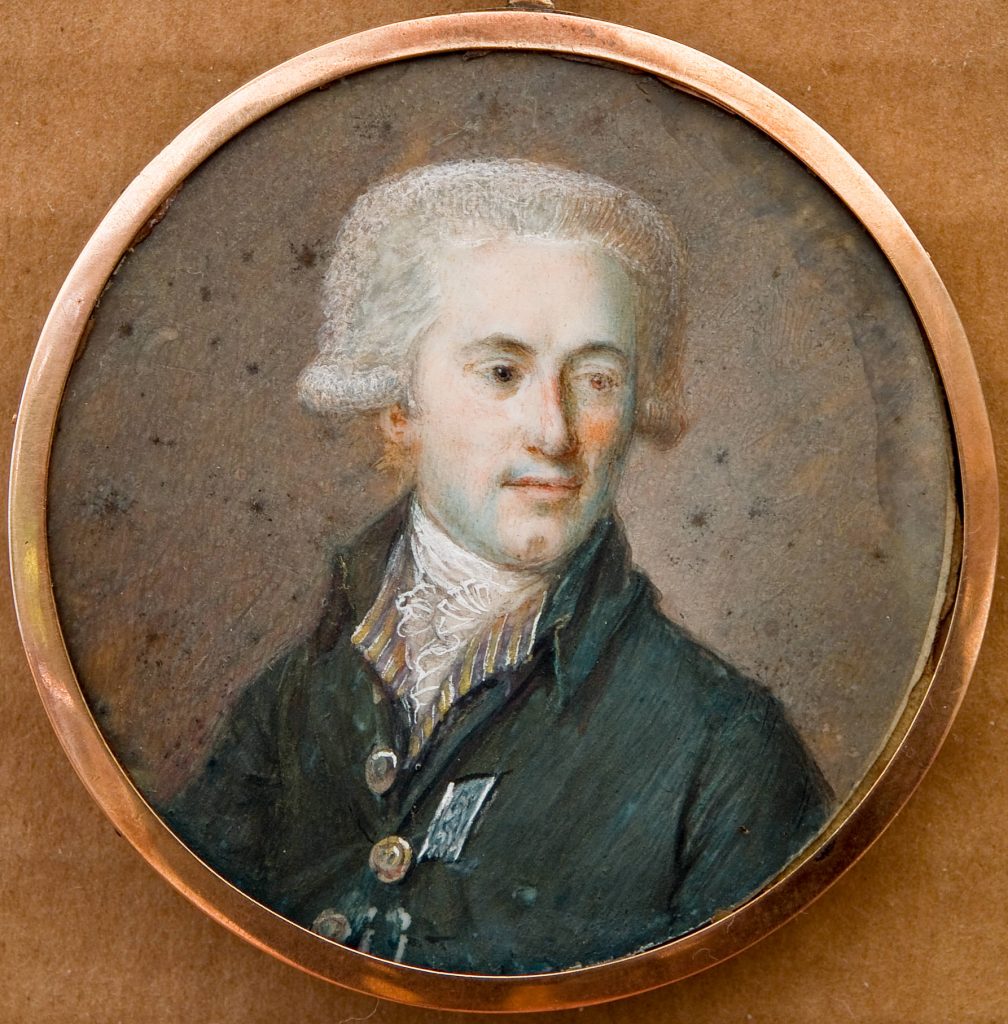The youngest child of Abraham and Elizabeth Cecil Franks, David Salisbury Franks was born in Philadelphia in 1740. His father was the son of Jacob and Bilhah Franks, brother of Richa, Phila, David, and Moses, among others.
David and his parents were living in Quebec in the 1770s, where, in 1775, David served as president of the young congregation Shearith Israel. Unlike his uncle David, aunt Richa, and his cousin Rebecca, all of whom were Loyalists, Franks would side with the Patriot cause. When he publicly defended the right of a critic to call King George III a fool and to compare him to the Pope, he was jailed for two weeks, an experience that helped convert him to the colonists’ cause. When an army led by Benedict Arnold and Richard Montgomery invaded Canada in 1775, Franks joined the American forces. Initially serving as paymaster of the Continental Army in Quebec, apparently using his own funds to pay some of the salaries of the American volunteers, Franks was later promoted to major and was assigned as Arnold’s aide-de-camp.
With the failure of American campaign in Canada, Franks moved to Philadelphia in July 1776, there joining the Continental Army. As a French Speaker, he was assigned as a liaison to the Comte d’Estaing, commander of the French naval forces fighting on the American side. Subsequently, he was again working as aide-de-camp to Arnold at the time of the latter’s attempt to hand over West Point fort to the British, though Franks was cleared of complicity.
He was then assigned to George Washington’s command, but when other officers in his regiment began impugning his loyalty, he asked Washington to initiate another court martial to thoroughly investigate the charges against him. Again, he was completely exonerated.
It was likely during this time that he married Sarah Sairy of North Carolina. Their son Jacob was born in North Carolina in 1780, followed sometime after by a daughter, Mary.
Meanwhile, Franks was promoted to the rank of colonel and entrusted with a mission to carry documents to diplomats Benjamin Franklin in Paris and John Jay in Madrid. In 1783 he returned to Philadelphia, but soon returned to Paris to deliver Franklin a copy of the peace treaty granting American independence.
After the war he served as vice-consul at Marseilles, and in 1786 as American envoy in the treaty negotiations between the United States and the Barabry States.
Despite his exoneration, Franks never lived down his association with Arnold. Jeffersonian Republicans carried out an attack on his character, eventually succeeding in getting him removed from the diplomatic corps in 1786. He returned to the America in dire financial straits, and tough he received a land grant for his services and a position with the Bank of the United States, he died in poverty in 1793, a victim of the yellow fever epidemic.
